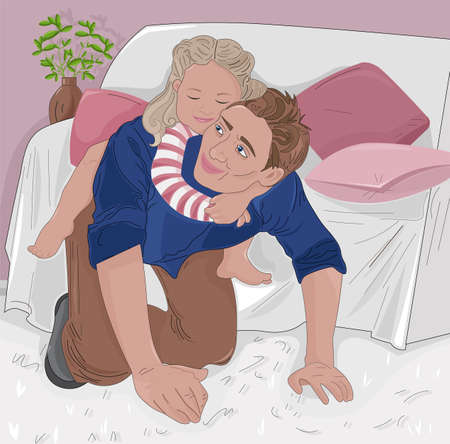Understanding Sleepwalking and Night Terrors
Sleepwalking and night terrors are two sleep-related phenomena that, while often discussed together, have distinct characteristics. In the UK, both conditions are recognised as part of a spectrum of sleep disturbances known as parasomnias. Sleepwalking, or somnambulism, typically involves getting up and moving about during deep stages of sleep, often with no recollection upon waking. Night terrors, on the other hand, are episodes of intense fear, screaming, or thrashing during sleep, most commonly seen in children but not exclusive to them.
Children are more prone to experience these episodes due to their developing brains and irregular sleep cycles. However, adults may also be affected, especially if they are under stress or have certain underlying health conditions. While these behaviours can be unsettling for families and individuals alike, it’s important to approach them with understanding and care. Recognising the signs—such as walking aimlessly at night or waking suddenly in a state of distress—can help prompt gentle support rather than alarm. By appreciating how these conditions manifest across different age groups, we lay the groundwork for appropriate care and reassurance within the British context.
2. Prevalence and Attitudes in the UK
Sleepwalking and night terrors are more common in Britain than many might think, particularly among children but also affecting adults. Recent studies estimate that around 15% of British children experience sleepwalking at some point, while approximately 2-4% of adults report similar episodes. Night terrors are less frequent but can be equally distressing, especially for families.
Awareness and Public Perception
Public awareness in the UK regarding these sleep disorders is growing, yet there remains a degree of misunderstanding. Many people still view sleepwalking and night terrors as harmless phases, particularly in childhood, often attributing them to stress or overtiredness. This sometimes leads to underreporting or delayed seeking of support, especially when symptoms persist into adulthood.
Cultural Attitudes towards Coping and Support
The traditional British approach has leaned towards “keeping calm and carrying on,” with families often managing sleep disorders privately rather than seeking professional advice. However, there is an increasing openness to discussing mental health and sleep issues, thanks to national campaigns and support groups.
Prevalence of Sleepwalking and Night Terrors in Britain
| Age Group | Sleepwalking (%) | Night Terrors (%) |
|---|---|---|
| Children (5-12 years) | 15% | 6% |
| Teens (13-18 years) | 8% | 3% |
| Adults (19+ years) | 2-4% | <1% |
This table highlights how common these conditions are across age groups in the UK, underscoring the importance of awareness and support tailored to each stage of life.

3. Identifying Triggers and Causes
Understanding what may set off sleepwalking and night terrors can be especially helpful for those living in the UK, where unique lifestyle factors come into play. While stress is a universal trigger, many Britons experience elevated stress levels due to long working hours, commuting in busy cities, and a fast-paced lifestyle. This constant hustle and bustle can make it more challenging for the body to fully relax at night, increasing the likelihood of disrupted sleep patterns.
Dietary habits also play a significant role. Traditional British evening meals are often hearty and sometimes consumed later in the evening, which may affect digestion and sleep quality. Popular drinks such as strong black tea or coffee, when enjoyed late in the day, can further disrupt natural sleep cycles. Additionally, alcohol consumption—common in social settings like pubs—can fragment sleep, making episodes of sleepwalking or night terrors more likely.
Environmental factors cannot be overlooked. The UK’s variable climate, with its long winters and limited sunlight, may contribute to irregular circadian rhythms and low mood, both of which can influence sleep health. Urban dwellers might also face disturbances from noise pollution or artificial lighting that sneaks through curtains during the night. For families with young children, changes in routine—such as starting a new school or moving house—are common British experiences that can act as triggers for night terrors.
Recognising these specific causes allows individuals and families across the UK to take proactive steps towards minimising triggers and creating a more restful environment. By being mindful of stress management, dietary choices, and environmental adjustments tailored to British lifestyles, it becomes possible to support better sleep health naturally.
4. Holistic Approaches to Support
Supporting individuals who experience sleepwalking and night terrors often involves gentle, natural strategies that are deeply rooted in British traditions. Rather than relying solely on medication, many families in the UK turn to holistic methods to nurture restful sleep and provide comfort through challenging nights. Here are some approaches commonly favoured across Britain:
Dietary Choices for Better Sleep
A balanced diet can have a significant impact on sleep quality. In British homes, incorporating foods known to support relaxation is a popular approach. A light evening meal, avoiding heavy or spicy dishes close to bedtime, is widely recommended. Including foods rich in magnesium and tryptophan—such as oats, bananas, and warm milk—can help calm the nervous system and promote sleepiness.
| Food | Benefit | Typical Use in the UK |
|---|---|---|
| Oats | Rich in melatonin and complex carbohydrates for steady energy | Porridge before bed |
| Warm Milk | Contains tryptophan for serotonin production | Classic bedtime drink for children and adults alike |
| Bananas | High in magnesium and potassium, easing muscle tension | Sliced over cereal or as a snack |
| Herbal Tea (e.g. chamomile) | Naturally calming, supports relaxation | Cup of tea an hour before bedtime |
Herbal Remedies and Natural Supplements
Many British households embrace traditional herbal remedies to encourage deep, peaceful sleep. Chamomile tea is a well-loved staple for its gentle sedative properties, while lavender—whether as a pillow spray or essential oil—is used to create a soothing bedroom environment. Valerian root, though less common, is another herbal supplement sometimes taken under professional guidance.
Establishing Soothing Evening Routines
The importance of a calming bedtime routine cannot be overstated. In the UK, families often prioritise winding down with quiet activities such as reading a book, listening to soft music, or practising gentle stretches. Dimming the lights an hour before bed, keeping screens out of bedrooms, and maintaining a consistent sleep schedule all contribute to minimising disturbances like night terrors or episodes of sleepwalking.
Sample British Bedtime Routine
| Time Before Bed | Activity |
|---|---|
| 60 minutes | Dimming lights, switching off electronics |
| 45 minutes | Cup of herbal tea (chamomile or peppermint) |
| 30 minutes | A warm bath or shower with lavender oil |
| 15 minutes | Reading or quiet reflection in bed with soft lighting |
The Value of Consistency and Comfort
Ultimately, supporting loved ones with sleepwalking or night terrors is about creating a nurturing environment that feels safe and predictable. By embracing these gentle, natural approaches—rooted in British cultural practices—it’s possible to foster deeper rest and reduce the frequency of disruptive sleep events.
5. When to Seek Professional Help
If you or a loved one is experiencing frequent sleepwalking or night terrors, it’s important to know when to reach out for professional support. While occasional episodes are not uncommon, especially in children, persistent disturbances that impact daily life or pose safety concerns may require expert guidance.
Recognising the Signs
Consider consulting an NHS professional if you notice any of the following: episodes that occur multiple times a week, injuries during episodes, pronounced anxiety or distress linked to sleep, sudden changes in behaviour, or if the sleep disturbances begin later in adulthood. These signs may indicate underlying health issues or the need for tailored intervention.
NHS Support and Resources
The NHS offers a range of services for those dealing with complex sleep problems. You can start by speaking with your GP, who may refer you to a specialist sleep clinic or recommend further assessment. Many areas across the UK have dedicated sleep centres where professionals can offer advice, treatment plans, and ongoing care. The NHS website also provides trusted information on sleep health and links to local resources.
Accessing Community Support
In addition to medical help, there are supportive communities and charities in Britain focused on sleep health and wellbeing. Organisations such as The Sleep Charity offer helplines, workshops, and online forums where families and individuals can connect with others facing similar challenges. Your local council may also provide information about support groups or wellbeing initiatives in your area.
Taking the Next Step
If you feel uncertain about what level of help is needed, reaching out for an initial conversation—whether with your GP or through a charity helpline—can be a gentle first step. Early support not only helps manage symptoms but also brings peace of mind, knowing you’re taking positive action for better sleep health.
6. Supporting Families and Loved Ones
When a family member experiences sleepwalking or night terrors, it can be unsettling for everyone at home. Offering sensitive support is vital, and British families can take several steps to create a safe and reassuring environment. First, ensure bedrooms are free of hazards by removing sharp objects, locking doors and windows securely, and using safety gates if necessary—particularly in homes with stairs. Consider gentle night lighting to help guide someone safely if they do wake up while walking.
Communication within the family is key. Approach conversations about sleepwalking or night terrors with empathy and without blame; reassure your loved one that these events are not their fault. If you’re a carer or parent, avoid waking the person during an episode, as this can cause confusion or distress. Instead, gently guide them back to bed if needed, always prioritising their safety.
Seeking local support can be empowering. The NHS provides accessible guidance on sleep disorders, while charities such as The Sleep Charity offer tailored advice for families across the UK. Some communities may have local support groups where you can connect with others facing similar challenges. Don’t hesitate to reach out to your GP for further advice or referrals to specialist services if episodes become frequent or severe.
Finally, remember self-care: supporting someone with sleep disturbances can be tiring. Ensure you’re getting enough rest yourself and seek help from friends, family members, or professional networks when needed. By fostering understanding, safety, and open dialogue at home, British families can provide invaluable support to loved ones experiencing sleepwalking or night terrors.

